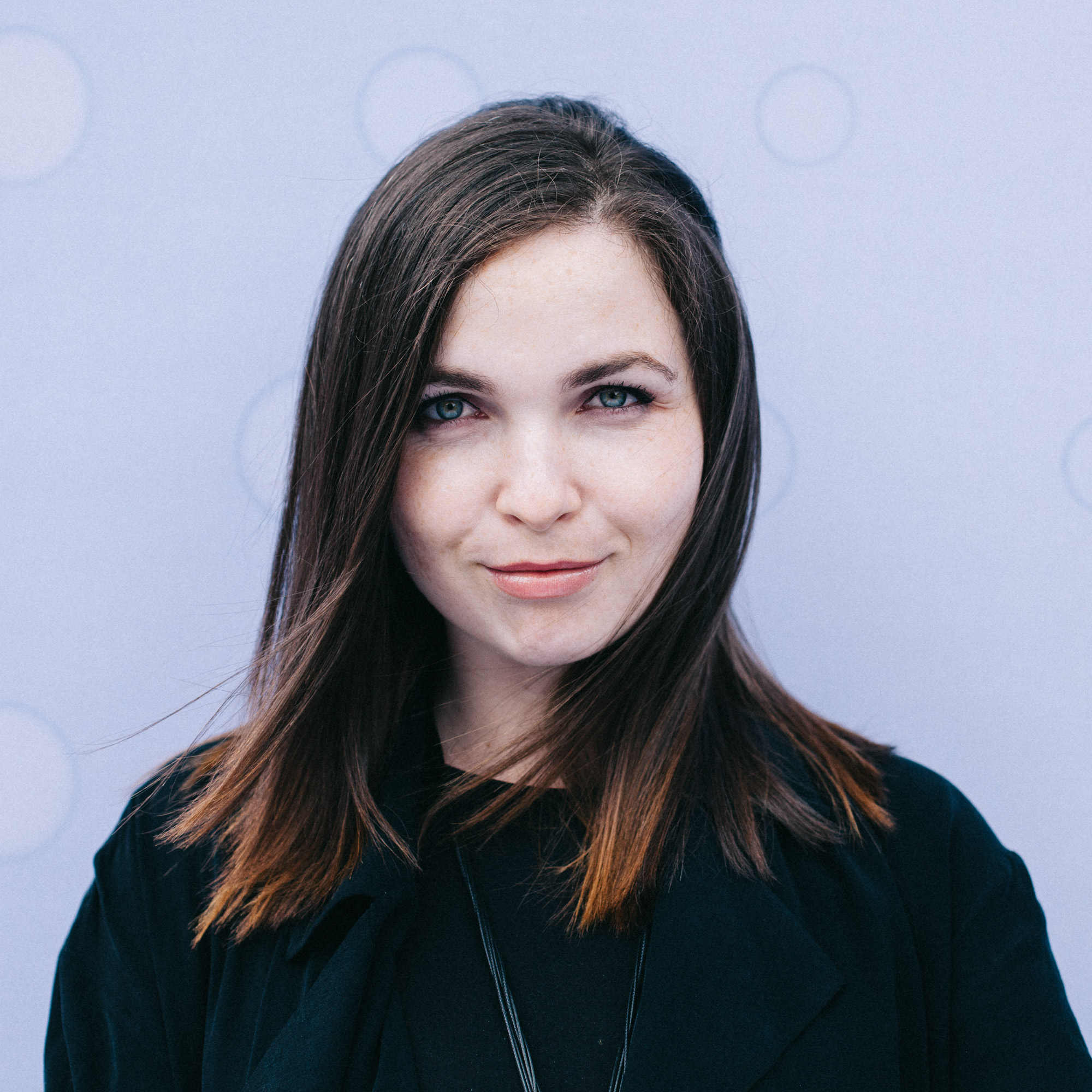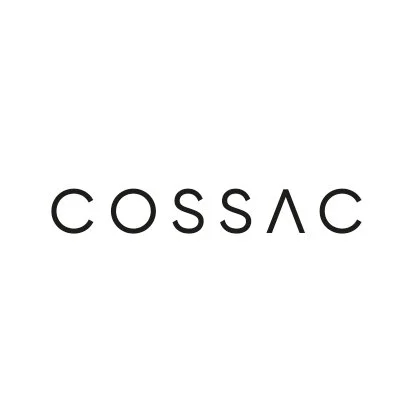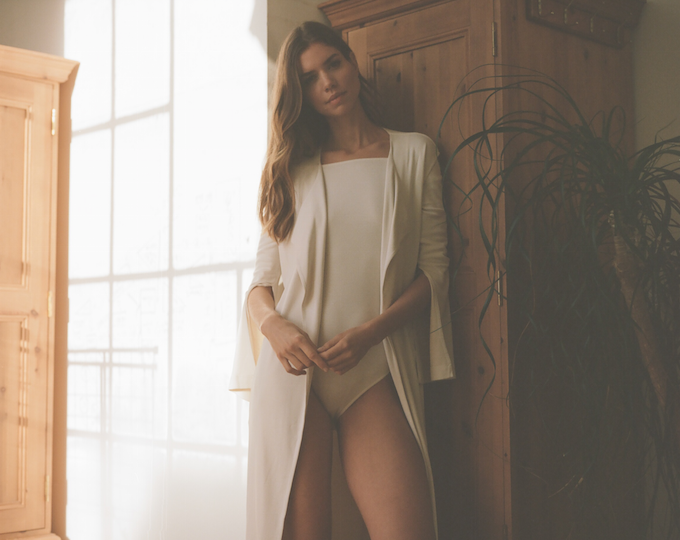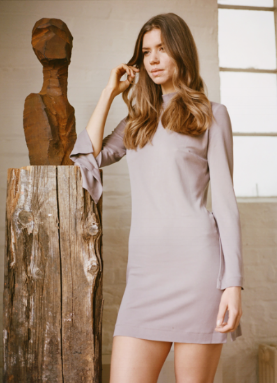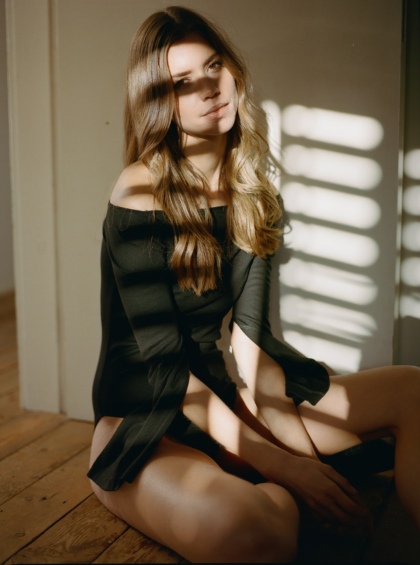Interview with Agata Natalia Kozak / Founder of COSSAC
"It is very important that everybody in the supply chain feels happy because it will also have a positive impact on the final product."
What needs to be improved in the sustainable fashion industry?
I think sustainable fashion should be more friendly and approachable to customers without being patronising and telling them off. Some people still buy some fast fashion brands and it is ok. Our role as designers is to work on making sustainable fashion more accessible so more and more people will buy it!
So it is not about being a perfect consumer…
No, there is no perfect consumer anyway. I think it is better to buy 30% sustainable than not buying sustainable at all. We have to be tolerant with each other. As an exemple I have views on leather and fur that some people completely disapprove but you have to understand that synthetical leather can also be poisoning for the environment. So yes, I own fur and leather and some people will crucify me for it but from my point of view it is part of the natural circle of life. Second hand is also a good alternative, I have jackets from the 70’s and they still look great. No matter if they are made out of leather of fur because guess what? It is better than buying a new one that will create more pollution on our planet.
© Ola Ajani
What is the one thing you learned about your customers since you have started COSSAC?
My customers care about being conscious but it is actually not their number one priority. I know some people could criticise me for saying that but I am just being realistic. It is true that they ask about the fabrics and where the things are made from but only if the garment looks good to them. If a dress looks like a bag of potatoes they will not buy it. No matter how sustainable the dress is…
Should we educate people more about the terrible impact of fast fashion?
Many people told me sustainable fashion brands make them feel like someone is telling them that they are bad people. That is not the right way of educating consumers. When they shop at a fast fashion store nobody is shaming them, so as designers we have to make sure to deliver the same experience as well. If you want to dress people you can't tell them off. One of my best stockist is based in London and they don’t specialise in sustainable fashion. But guess what? They usually tell me people first like the design of my clothe and then realise that my products are sustainable. People have to make peace with the current fashion situation and just decide to be part of the change.
Speaking of people who decided to be part of the change, can you share some of your favorite sustainable fashion blogs for us to follow?
Yes, check out Eco Warrior Princess/@ecowarriorprincess, Kunstkinder mag/@kunstkinder_mag, Fashion Me Green/@gretaeagan, and Lissome/@thelissome.
© Ola Ajani
Tell me how you ended up starting your own sustainable fashion brand?
I would say that a couple of things pushed me into that direction. Obviously I had a wake up call with the Rana Plaza disaster in Bangladesh but also saw with my own eyes some injustices in the fashion industry in my previous career. I used to work with Chinese and Indian factories in which people were very underpaid and the chemicals used in textiles were terrible for the environment. At the same time I started watching lots of documentaries, reading lots of books related to the impact of fashion and the combination of all those things were like a final push to inspire me to launch COSSAC. I also remember it was a business decision because I could see there were not that many stylish and sustainable brands back in 2014. What was on the market was also often too basic or too hippy-like. Then, starting my own brand felt like it was the right decision at the right moment.
© Ola Ajani
Where do you find inspiration for your collection?
One part of my inspiration comes from my constant travels. I observe people a lot and it guides me on what they like or want to wear. My collection is trans-seasonal so you can wear it from a season to another. I want the consumer to be able to wear my clothes more than 30 days, which is the magical number in fashion. Depending on how you accessorise it, one outfit can take you from day to night.
I have heard selecting factories for your products can still be a tricky road…
Indeed, selecting factories is still a complicated process. I have been working in fashion for many years and it is still very hard to find a reliable factory that has the right working conditions and is GOTS (Global Organic Textile Standards) certified. As an example, I work with one factory in Turkey which is not GOTS certified but when I went there to get to the head office I had to go through the whole production plan. To me it means they had nothing to hide because anyone can watch what was going on there. It was definitely a really good sign to me. With this factory I know how much people are getting paid and in which conditions they work in. I also like to get very involved by visiting them every three or four months. I always bring candies and gifts from London because I like to treat the people I work with as a family. It is very important that everybody in the supply chain feels happy because it will also have a positive impact on the final product.
© Ola Ajani
Any tips for people wanting to launch their own sustainable fashion brand?
People have to remember they are about to create a fashion brand. I honestly think some sustainable fashion brands would suit more as a charity organisation than as an actual fashion brand. They tend to neglect their branding and marketing strategy, which are so important. You have to know exactly what you want in terms of the product quality, then you select amazing fabrics, educate yourself on every sustainable aspects possible you could use. Finally, you should always go to trade shows so you can get to know your suppliers. It is a lot of hard work but it is also very rewarding.
© Ola Ajani
How do you want your business to grow in the next years?
I would like to expand into more markets. We are already present in Korea, Japan, Canada and in the UK. That being said I don’t want the brand to become too big because growing too much means not staying sustainable anymore. When you grow too big, then come money problem, logistics problems and getting too rich is not sustainable either. As long as I can sustain myself and make the life of the people around me better I am happy. I mean small is beautiful. To me it is such a blessing to have a personal relationship with all my retailers. I travel a lot and I always make sure I visit the shops where my products are represented. Not a lot of designers have this kind of privilege once their business have dramatically increased in size.






